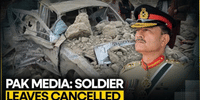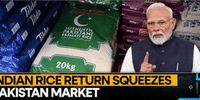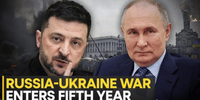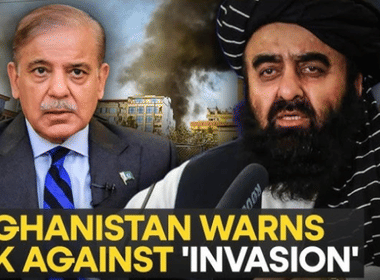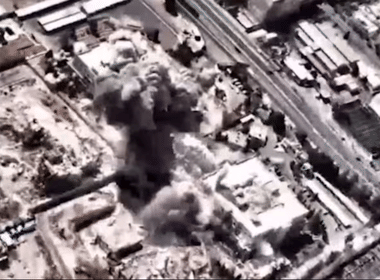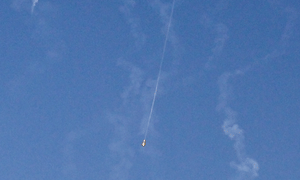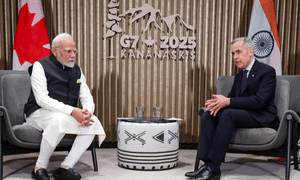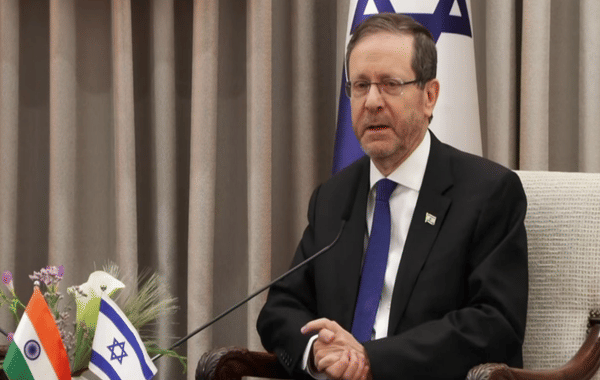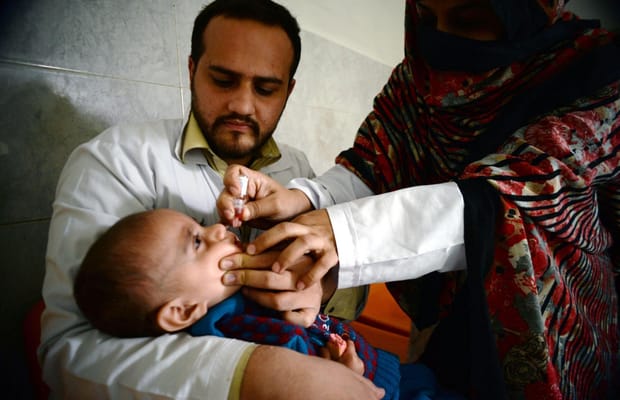
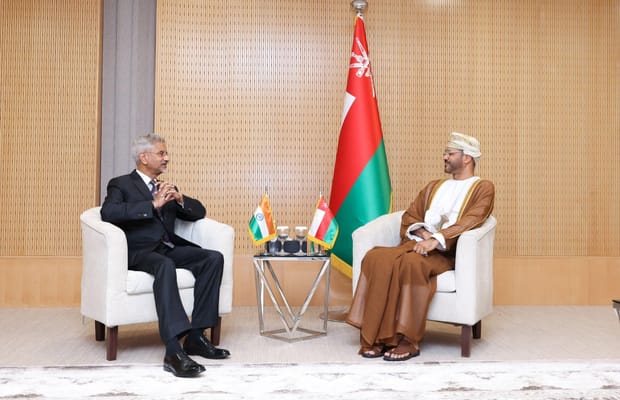
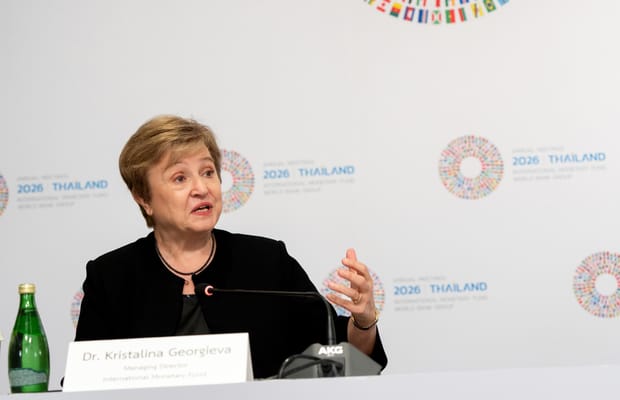
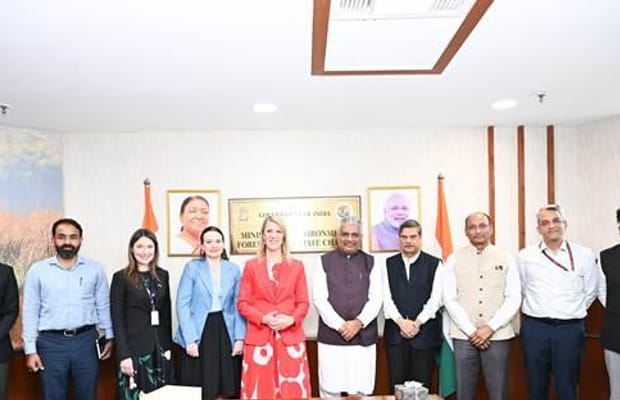
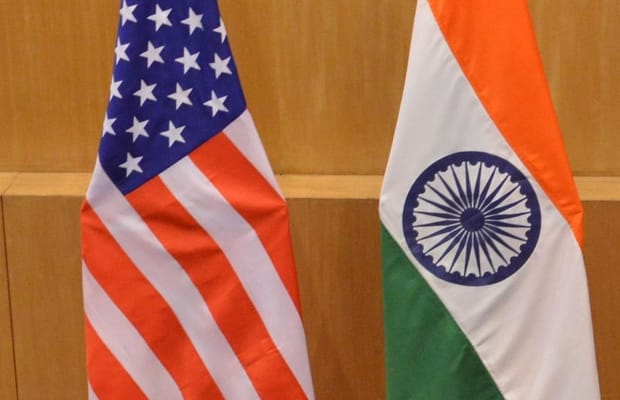
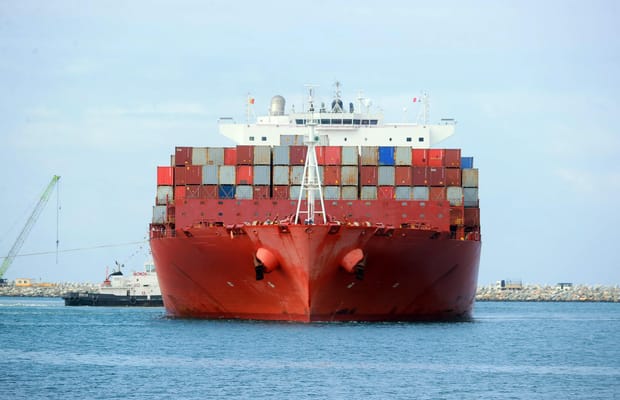
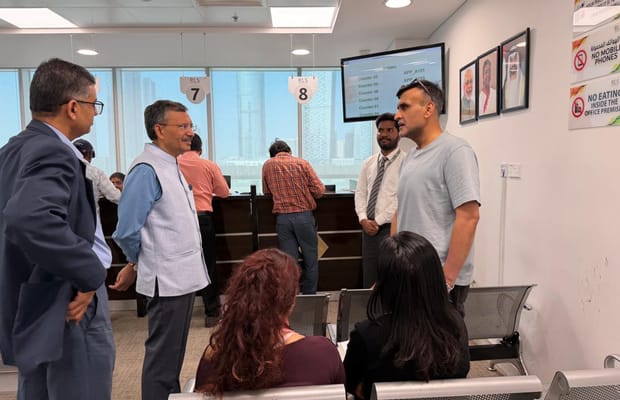
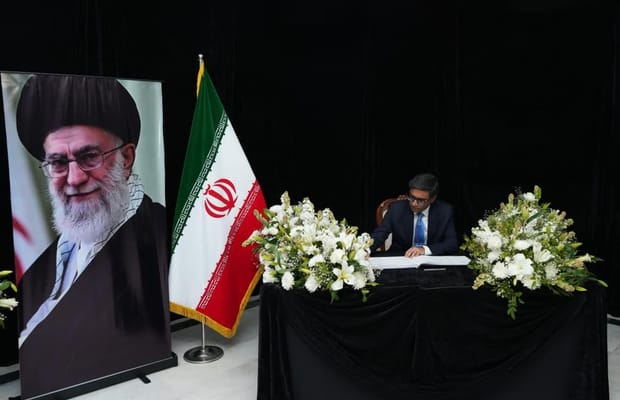
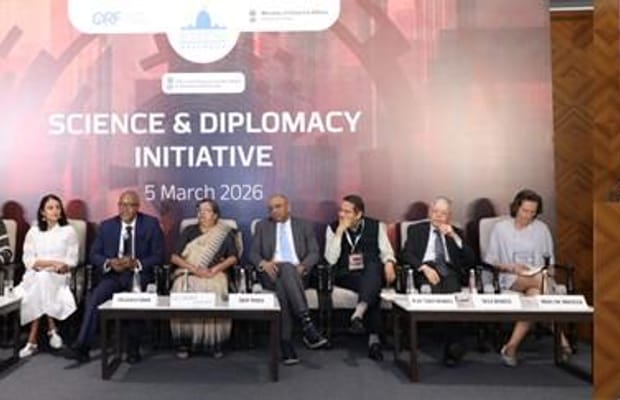
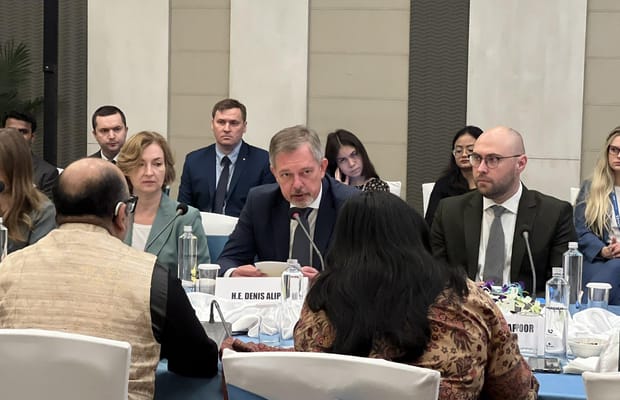
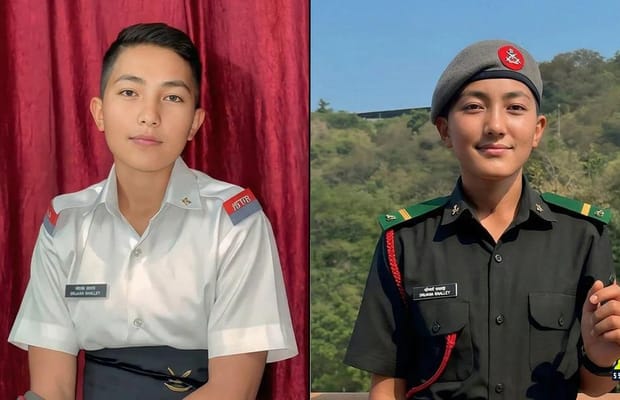
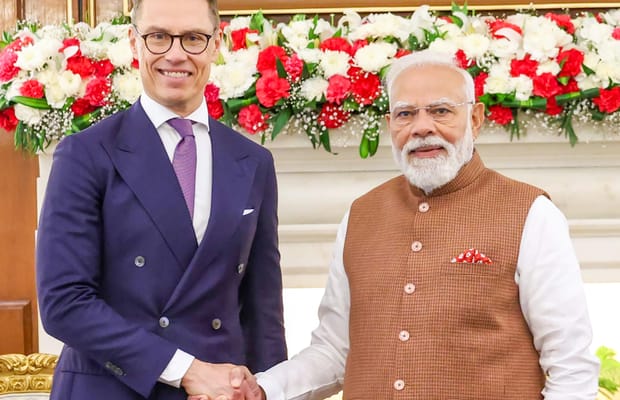
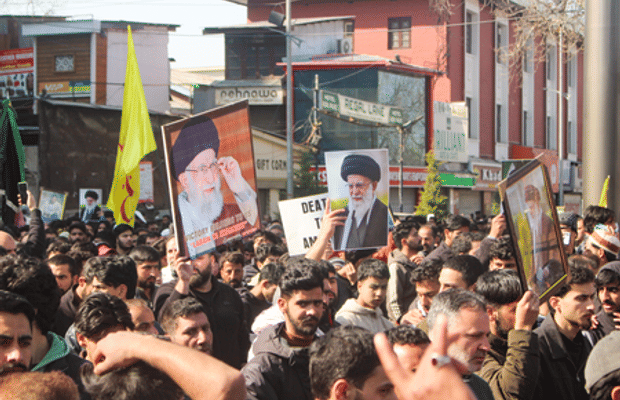

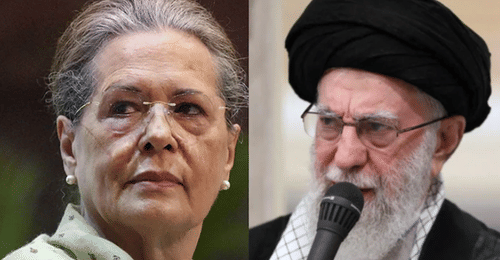
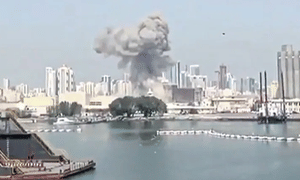
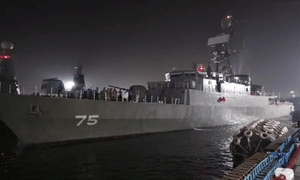

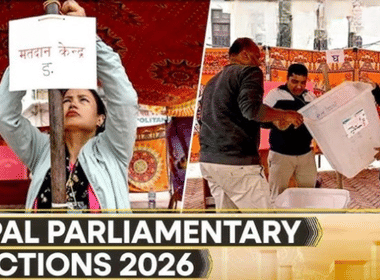
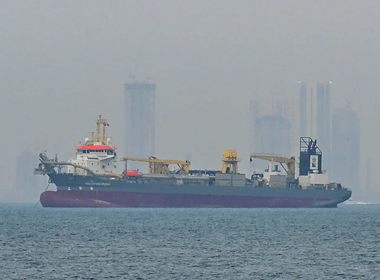
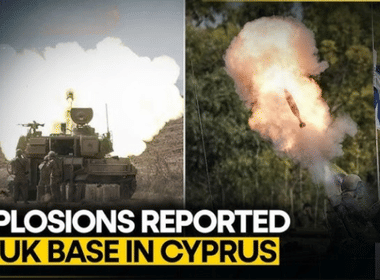



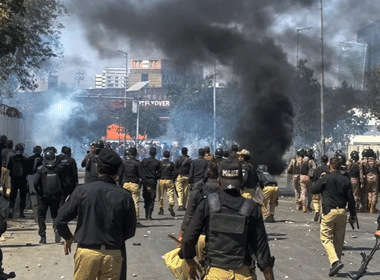
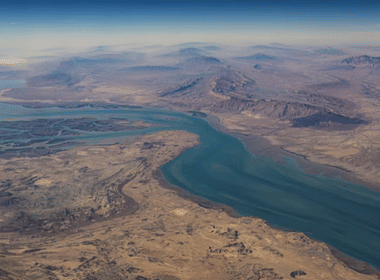
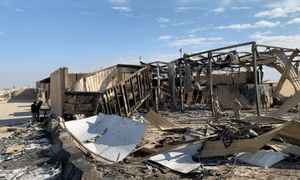
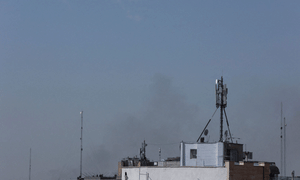

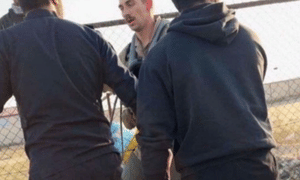
Iranian state media on Monday released a photo on Telegram claiming to show the American F-15 pilot whose jet was downed over Kuwait earlier that morning. The posts also included footage of Iran’s extensive drone fleet and strikes on what it described as US-Israeli targets in the region. Press TV shared the pilot’s image, while IRNA posted a video allegedly showing the F-15 being shot down. Local sources reported the jet was downed over Kuwaiti airspace. Press TV also showcased Iran’s drone arsenal and its subsequent attacks.
The developments come amid escalating regional tensions, with Al Jazeera reporting explosions in Abu Dhabi and Dubai, and loud blasts in Doha. Arab media indicated that Iranian missiles and drones also targeted Kuwait and Bahrain, with smoke seen near the US embassy in Kuwait. The Kuwait Air Defence Force intercepted multiple hostile aerial targets.
Iran’s Supreme National Security Council Secretary Ali Larijani rejected negotiations with the US. Amid the unrest, the Provisional Leadership Council, including President Masoud Pezeshkian, Judiciary Chief Gholamhossein Mohseni-Ejei, and Ayatollah Alireza Arafi, convened to oversee the country following the deaths of Supreme Leader Khamenei and other top officials. State media reported at least 201 fatalities across 24 provinces from the ongoing attacks.
Disclaimer: This image is taken from ANI.
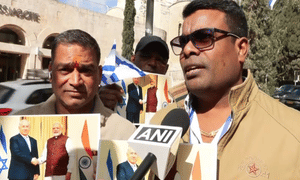
Jerusalem streets on Wednesday buzzed with excitement as tricolours adorned shopfronts, community leaders organised welcome events, and Hindi conversations filled neighbourhoods with a strong Indian presence ahead of Narendra Modi’s two-day state visit to Israel. For the Indian diaspora, the visit feels both historic and personal. Many see it as more than a diplomatic trip, reflecting the remarkable growth of India-Israel relations since Narendra Modi first visited in 2017, becoming the first Indian Prime Minister to do so.
Laxmi Narayana, who moved from Hyderabad to Israel for work, said, “We are very happy. A warm welcome to our Narendra Modiji. This being his second visit feels special.” He also highlighted the camaraderie between Narendra Modi and Benjamin Netanyahu, expressing hopes for stronger India-Israel ties.
Thousands of Indian workers across Israel—in construction, agriculture, and hospitality—have benefited from the growing partnership. Banala Gangadhar, President of the Israel Telangana Association, called the visit “long-awaited” and said it will further strengthen the bond between the two nations, creating opportunities for more Indians to work in Israel.
Srinivas, a resident of Israel for five years, described the day as “auspicious,” noting that the promises from Modi’s first visit have been realised with thousands of Indians now employed across various sectors. Prakash and Paska Sudhakar, both from Hyderabad, echoed the sentiment, highlighting the respect and warmth Israeli people show toward Indians and expressing hope that the visit will deepen bilateral relations.
Beyond diplomacy, the visit carries emotional significance for the diaspora, symbolizing recognition, connection, and shared futures. As India and Israel continue to collaborate in defence, technology, agriculture, and innovation, the relationship resonates on both professional and personal levels for expatriates. During the visit from February 25–26, Narendra Modi will meet with Netanyahu","israeli prime minister"], Israeli President Isaac Herzog, and address the Knesset, becoming the first Indian Prime Minister to do so. He will also engage with the Indian community in Israel.
Disclaimer: This image is taken from ANI.
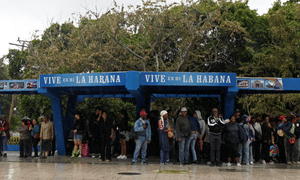
Canada has announced plans to help Cuba as the Caribbean nation struggles with severe fuel shortages after the United States tightened restrictions on oil supplies to the island. The Canadian government said on Monday that it is preparing assistance for Cuba but has not yet shared specific details about what this support will involve.
The shortages have deepened because the U.S. government under President Donald Trump has blocked all oil shipments to Cuba, including deliveries from its traditional supplier, Venezuela. This has driven up costs for essentials such as food and transport, contributed to widespread power outages, and added to the hardships faced by residents.
Canadian Foreign Minister Anita Anand confirmed that Ottawa is drawing up an aid plan but did not disclose what form the assistance might take. The United Nations has warned that if Cuba’s energy needs continue to go unmet, the situation could escalate into a humanitarian emergency.
Tensions between Canada and the U.S. have been growing over several policy issues, including trade tariffs and foreign relations, with Ottawa seeking to assert a more independent middle‑power role. Trump has publicly predicted that Cuba’s economy will soon collapse under the weight of the tightening U.S. measures, and his administration’s recent military action in Venezuela—leading to the capture of its leader—has further strained regional relations.
Disclaimer: This image is taken from Reuters.

FBI Director Kash Patel joined the U.S. men’s hockey team in a jubilant locker-room celebration in Milan after their dramatic 2-1 overtime victory over Canada secured the gold medal at the 2026 Winter Olympics. Videos circulating on social media showed Patel enthusiastically drinking beer, spraying drinks, and even receiving a gold medal from a player as the team celebrated the United States’ first men’s hockey Olympic gold since 1980.
Patel later addressed critics on X, emphasizing that he was honored to celebrate with the athletes, framing the moment as an expression of national pride and unity. While supporters praised the gesture as a show of solidarity with American champions, his appearance has also sparked debate about priorities for someone in his position. The director’s visit to Italy included official duties, such as meetings with Italian law enforcement and U.S. security partners to strengthen Olympic safety operations. Advocates argue that celebrating the team aligns with fostering morale and supporting national achievement.
Kash Patel has been serving as FBI Director since February 21, 2025, after being confirmed by the U.S. Senate, becoming the ninth person to lead the agency. Prior to this role, he built a diverse legal and national security career, starting as a public defender, then serving as a federal prosecutor, adviser to the House Intelligence Committee, and holding senior positions at the National Security Council and Department of Defense. His appointment was notable, as he had previously been a vocal critic of the FBI. As director, Patel now oversees the agency responsible for investigating federal crimes, counterterrorism, and national security matters across the United States.
Disclaimer: This image is taken from @Kash_Patel.


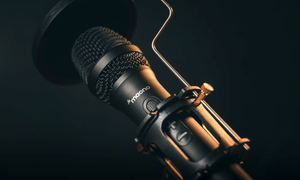
President Donald Trump’s State of the Union address showcased America’s economic successes and ambitious promises, projecting a confident vision for the nation’s future. But how accurate are these claims, and what issues still linger? Hairianto Diman and Elakeyaa Selvaraji analyze the main themes and their potential implications for the country’s future, with insights from Steven Okun, CEO of APAC Advisors.
Disclaimer: This podcast is taken from CNA.
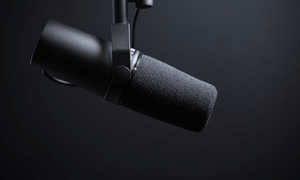
On Saturday (14 Feb), hundreds of thousands joined global protests against the Iranian government. Daniel Martin talks with Malminderjit Singh, Founder and MD of Terra Corporate Affairs.
Disclaimer: This podcast is taken from CNA.
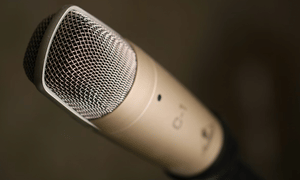
When Donald Trump returned to the White House last year, he pledged to eliminate what he called “woke” culture in America. From the John F. Kennedy Center for the Performing Arts to the Smithsonian Institution and the Stonewall National Monument, his administration has sought to reshape American cultural institutions and historical narratives to reflect its own priorities. Jonathan Freedland and the Guardian’s Washington bureau chief, David Smith, examine how Trump’s efforts to recast history and culture in his own image could affect millions of Americans.
Disclaimer: This podcast is taken from The Guardian.
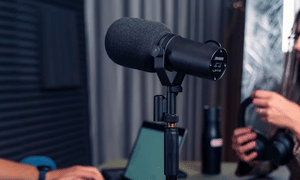
The expiration of the New START treaty has lifted the final restrictions on the nuclear stockpiles of the United States and Russia. As global arms control frameworks weaken, Russia is simultaneously strengthening military partnerships abroad, notably through a new five-year defense agreement with Myanmar’s ruling junta. This raises questions about whether Moscow now has greater freedom to act militarily and what these moves mean for global nuclear security.
Disclaimer: This podcast is taken from CNA.


